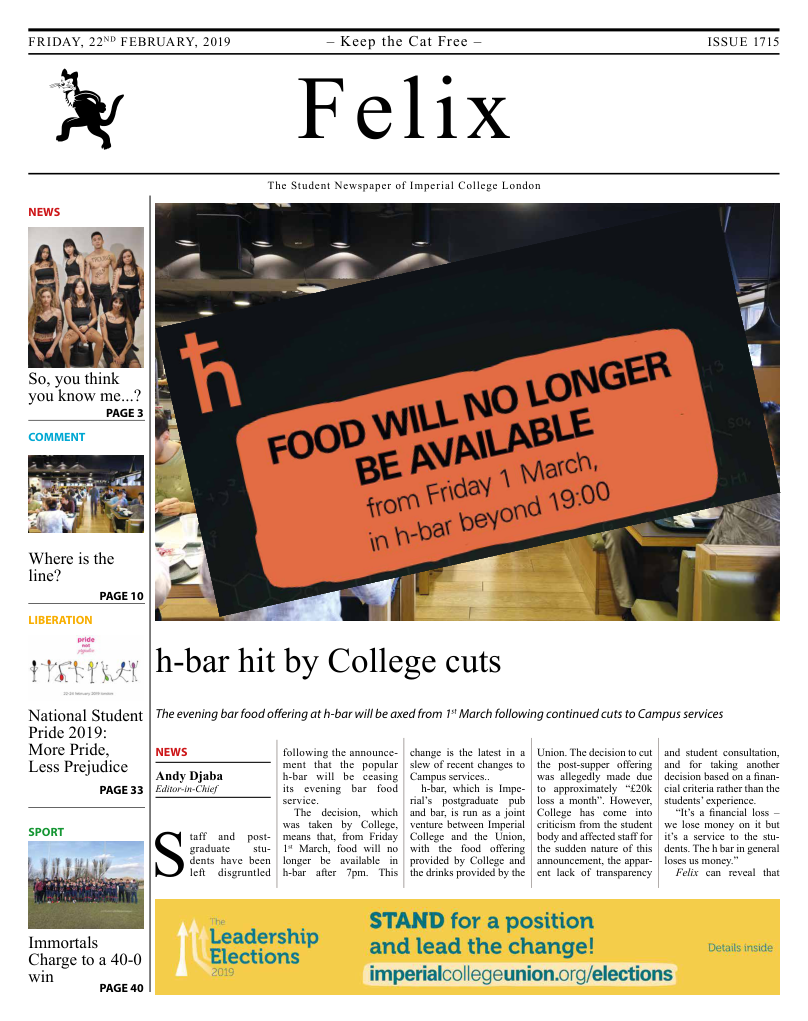The Labour defections - a Tory perspective
Politics writer Calum Drysdale argues that the last thing the Tories should do about the Labour defections is crow.
On Monday seven Labour MPs announced that they were leaving the Labour party in protest at Jeremy Corbyn’s leadership and his refusal to act on anti-Semitism present within the party. This has drawn inevitable comparisons with the Social Democrat Party, a group of four former ministers who resigned in 1981, in response to the Labour party’s shift to the left. The SDP has long been a scare story in British politics for those considering setting up their own party. While they managed to gain 25% of the vote in 1983 they gained only 23 MPs and the party ended up merging with the Liberal Party to form the Liberal Democrats.
The #LabourSplit has drawn comment from the more twitter-minded of Tory supporters who have indulged in some heavy schadenfreude. They should not be so quick and should look to the keeping of their own house before they stir elsewhere. While the seven MPs, now styled as “The Independent Group” are, with the exception of Chuka Umunna and Luciana Berger, not well known to the general public, most of them have held shadow cabinet positions. In the games of Westminster their actions could be the start of something far greater than a new SDP.
The society we live in now is far less class stratified than it was in the early 80’s. While wealth disparity has grown, studies have shown that the manual or lower-paid social bracket has shrunk enormously with 81% of Britons employed in service work in 2011. This makes the old models for political parties and their raisons d’être outdated. Labour was meant to represent the workers while the Tories fought for the middle and upper classes. These divisions are no longer relevant as Brexit has shown time and time again.
This is why the Independent Group may just be more than just a flash in the pan. Only one Conservative MP ended up joining the SDP. Considering the time period, while Thatcher was waning in relevance and popularity she still went on to run the country for another nine years. The Tory party of today, a spectrum of Brexiteers and Remainers of every shade, is a far cry from that age of relative unity.
The constant Brexit votes have made a mockery of whipping (ensuring that MPs follow a party line) as MPs vote time and again against their parties, acquiring a taste for rebellion. This has allowed centrist MPs, walking through the lobbies of the House of Commons, to spot those other members from across the aisle whose liberal, urban politics line up significantly better with their own than those of other party members and critically, their party leadership.
Theresa May is not Margaret Thatcher, she does not command the respect or loyalty of her MPs. Now that the first step has been taken by others I would not be surprised if Tory Remainers fling off the millstone necklace of the Tory brand and look for something that offers them a way out of the current mess.
Article written 19/02/19
As of 20/02/19, three Tory MPs and one additional Labour MP have defected.










